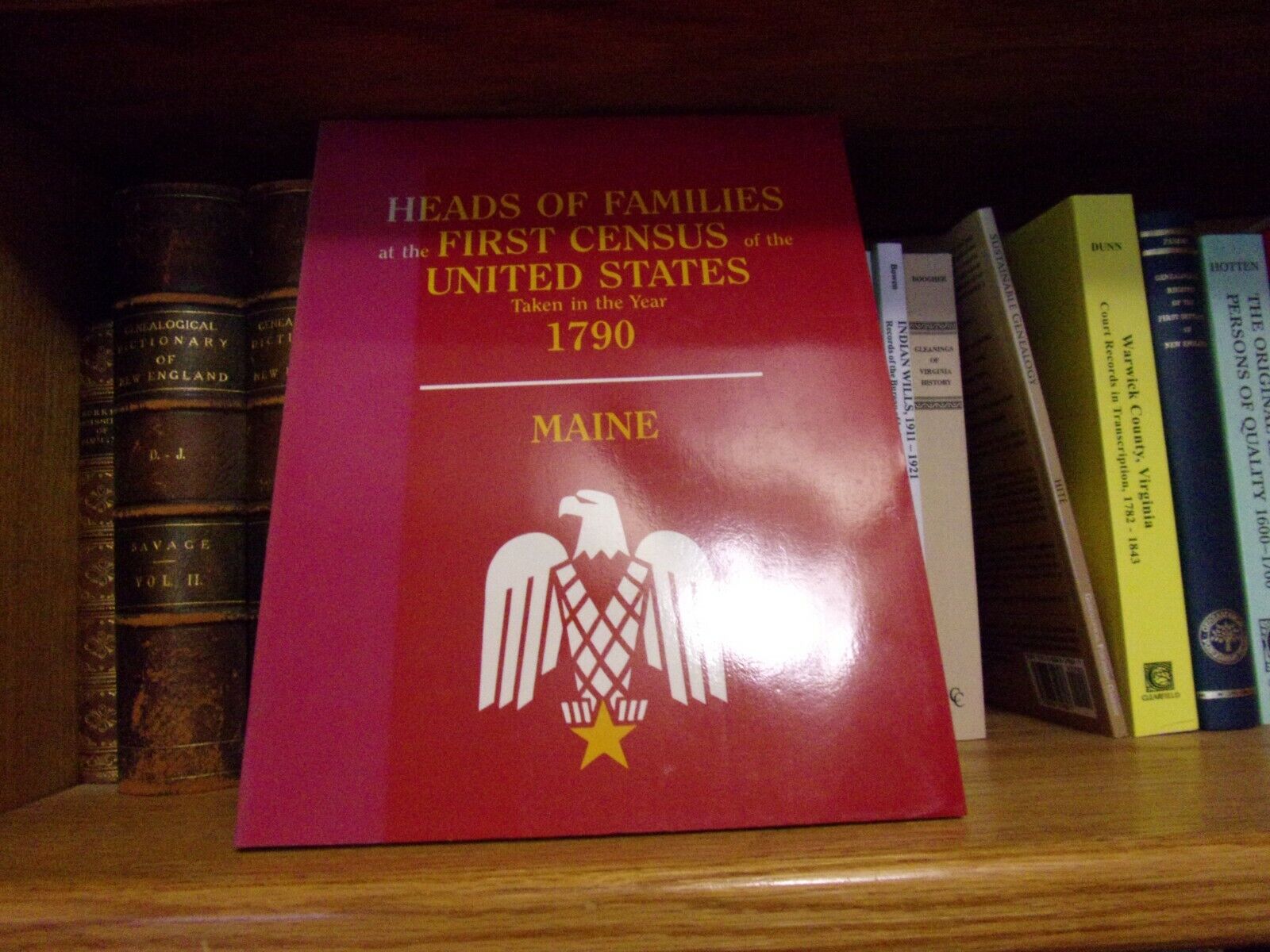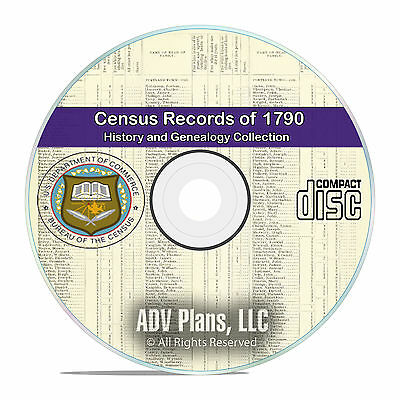-40%
1790 Maine Census Genealogy
$ 10.55
- Description
- Size Guide
Description
Untitled DocumentHeads of Families at the First Census of the United States Taken in the Year 1790: Maine
United States Bureau of the Census
No other official record or group of records is as historically significant as the 1790 census of the United States. The taking of this census marked the inauguration of a process that continues right up to our own day--the enumeration at ten-year intervals of the entire American population. In its very continuity the census is a mirror image of the evolution of the American republic, and the census of 1790, the first official enumeration of all heads of household residing in the infant republic, is the true starting point of this process, the place where we can point a finger and say with confidence, "
This
is where it started! From here on we deal with facts!" The equivalent of England's
Domesday Book
, the 1790 census is an authentic chronicle of the American people during the period immediately following the Revolution and at the time of the adoption of the Constitution. It is certain that no other set of records in the government archives contains as much information about ordinary citizens at this momentous period in history.
The original 1790 enumerations covered the present states of Connecticut, Delaware, Georgia, Kentucky, Maine, Maryland, Massachusetts, New Hampshire, New Jersey, New York, North Carolina, Pennsylvania, Rhode Island, South Carolina, Tennessee, Vermont, and Virginia. Unfortunately, not all the schedules have survived, the returns for the states of Delaware, Georgia, Kentucky, New Jersey, Tennessee, and Virginia having been lost or destroyed, possibly when the British burned the Capitol at Washington during the War of 1812, though there seems to be no proof for this. For Virginia, taxpayer lists made in the years 1782-1785 have been reconstructed as replacements for the original returns.
In response to repeated requests from genealogists, historians, and patriotic societies, the surviving census records were published by the Bureau of the Census in 1907 and 1908. The twelve states whose records were then extant are each covered by a single volume. The twelve published volumes contain the names of the heads of about 400,000 families, with information concerning their place of residence, the size of their families, and the approximate ages of the male family members. The families, averaging six people each, comprised about 2,400,000 individuals, or approximately 75% of the total population of the United States at the time.
In each of the published census volumes the schedules are arranged by county and in some cases by minor subdivisions of counties, thus enabling the researcher to narrow his field of research to a particular judicial district. Each volume is separately indexed, so the researcher has only a single alphabet to consult for each state. Heads of families, arranged in alphabetical order under each county and district, are listed with the following information after each name: Number of free white males of sixteen years and upward; number of free white males under sixteen years; number of free white females; number of all other free persons; number of slaves.









